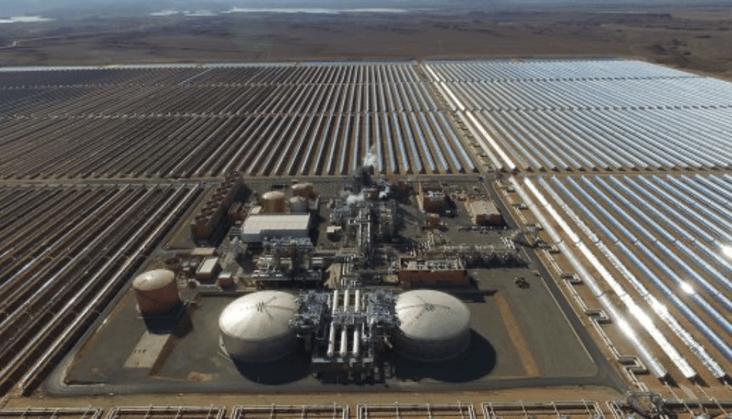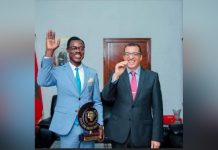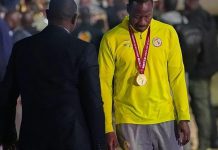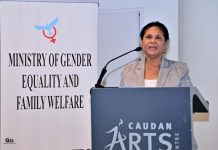Africa-Press – Mauritius. This week the IMF and the World Bank return to Africa after a 50-year break to hold their annual meetings in Marrakech, Morocco’s ochre city still reeling from September’s earthquake which left over 3,000 dead.
The government reckons it will have to raise over $11bn to rebuild the houses, roads and bridges destroyed by the tremors whose epicentre was in the Atlas Mountains. Local firms say that is a vast underestimation.
Whatever the final tally, the government bulldozed through the debate on the ethics of tying up local officials to host a grand international conference, with 10,000 delegates, arguing that it would be a net gain for Morocco and for Africa.
If the meeting can break the inertia in the campaign to reform the international financial system, that would be a fair gamble. On present showing, however, this is a big ask.
At least Morocco’s political, economic and geographical conditions should give delegates a closer understanding of the massive migratory pressures within Africa.
Over 90% of Africa’s migrants stay on the continent and Morocco is a favoured destination. This is not just because it’s a stepping-off point to cross the Mediterranean.
Wage rates and job opportunities are better than in many of the neighbouring Maghreb states. Morocco is also testing the IMF and World Bank market economic model to its limit.
The government had brought inflation down to under 6% by the middle of the year, one of the lowest rates in the region, and cut unemployment to under 16%.
But people are still taking to the streets in significant numbers to protest about jobs and the cost of living.
It has one of the region’s most diversified economies, but real growth rates have struggled to recover to 3% this year where the IMF’s economists reckon it will stay for the next three years.
As with most economies on the continent, the lack of long-term capital at affordable rates constrains expansion. Until its recent breach with President Emmanuel Macron’s government, Morocco was a favoured investment destination for French companies.
It is also one of the continent’s leaders in renewable energy, establishing solar-power farms to export electricity across the Mediterranean. European companies say they would favour Morocco for green projects, but investment is still lagging behind pre-pandemic levels.
Morocco, Kenya, South Africa and Egypt are heralded as Africa’s pacemakers for renewable energy but it is worth remembering that the temperate Netherlands still attracts more investment in solar and wind farms than all of Africa’s 55 economies combined.
These practical points exemplified by Morocco underline the calls for international financial reform being made by eminent African economists such as Carlos Lopes, a special envoy for the AU, and Akinwumi Adesina, president of the African Development Bank and Barbados Prime Minister Mia Mottley.
Lopes, Adesina and Mottley are calling for a more productive use of the IMF’s Special Drawing Rights (SDR) reserve currency. This could include a special allocation of $100bn of SDRs to African economies to ease liquidity pressures as countries try to recover from the pandemic downturn.
Other proposals on Africa’s reform agenda to be raised at the Marrakech meetings include a comprehensive overhaul of the IMF’s quota system, the allocation of shareholdings and voting rights which determine the weight of a country within the institution.
This should go along with a ‘critical examination of the current debt framework’, argues Lopes, which does little to help countries adapt to climate change with sustainable development. The IMF could also suspend its surcharge, meant to discourage the prolonged use of IMF funds, but in practice discriminate against poorer countries.
Lopes adds that the IMF and World Bank should streamline access to new climate funds, making it easier for African countries to access such funds and giving them more say in the allocation of the funds. The other big financial reform that should headline the discussions in Marrakech next week is the cost of borrowing for African economies.
According to its chief economist David McNair, the One campaign calculates that African countries are paying a 500% premium on their borrowing from capital markets compared to rates that could be achieved with the World Bank.
It comes down to how seriously the richest economies are taking the climate crisis This difference, says McNair, adds up to African economies paying an extra $56bn in debt service for loans taken out over the past five years.
This is also part of the G20’s reform agenda for the IMF and World Bank. It is looking at ways to triple the financial firepower of those institutions as well as the regional development banks.
One way to do this quickly, raising as much as $190bn, would be to incorporate ‘callable capital’ into the development banks’ capital adequacy frameworks.
‘Callable capital’ is a guarantee that commits the biggest economies to step in if the development banks get into trouble. This is where it becomes a question of political will.
It comes down to how seriously the richest economies are taking the climate crisis and its devastating effects on the political economies of developing countries; or how much they want to continue turning in on themselves. What happens in Marrakech should give a clearer readout on how much commitment there is to reform the world’s financial behemoths.
For More News And Analysis About Mauritius Follow Africa-Press







